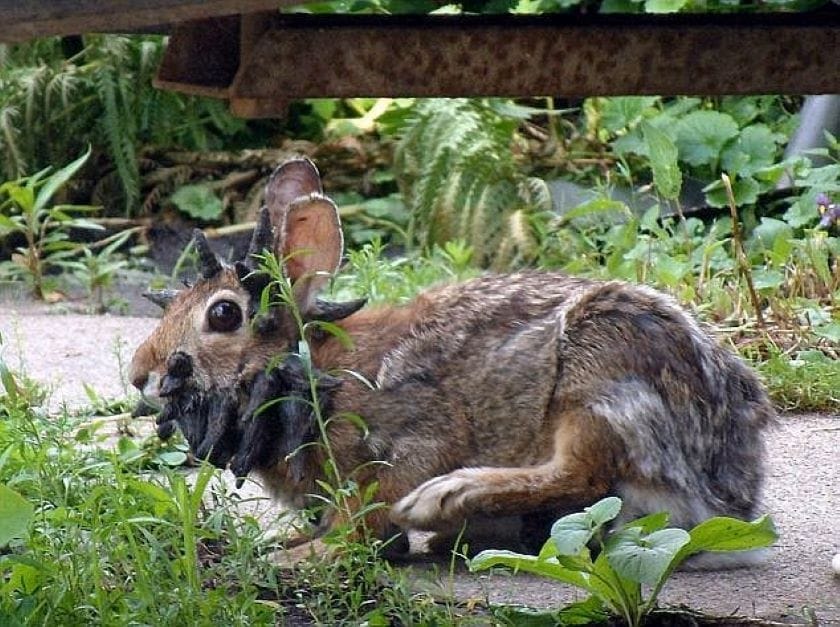In parts of Colorado, people are spotting rabbits with strange, horn-like shapes growing on their heads and faces. At first glance, it looks like something from a science-fiction movie. But wildlife experts say there is a clear medical reason.
These growths are caused by rabbit papillomavirus. This virus makes the rabbit’s skin grow too much, forming soft lumps or horn-like shapes. Some look like twisted tentacles. They can be small, or they can grow so big that they hang over the rabbit’s eyes, mouth, or ears.
These growths are not just strange to look at — they are dangerous for the rabbit. Large growths can block vision, make it hard to eat, and slow the rabbit down. This leaves the animal weak and more likely to be caught by predators.
The virus spreads between rabbits through close contact, and possibly through insects like fleas or ticks. It usually does not infect humans, but it can infect pet rabbits. This is why pet owners in Colorado are being warned to keep their animals away from wild rabbits. A pet that spends time outside can pick up the virus without anyone noticing at first.
Wildlife officials are asking the public not to touch any rabbit that has these growths. Handling a sick rabbit can spread the virus to other animals. It can also expose people to other diseases rabbits may carry. Instead, they recommend watching from a safe distance and calling local wildlife services if you see one.
This is not the first time rabbit papillomavirus has been seen in the United States. It has been recorded in different states over the years, but experts believe it may become more common in areas where wild rabbits gather in large numbers.
The sight of these rabbits might make you curious. Your brain wants to look closer because it is unusual. But this is exactly why experts are warning people—our curiosity can lead to risky behavior. A moment of contact could help the virus spread to more animals.
There are simple steps to help prevent the spread:
Do not feed wild rabbits.
Keep pet rabbits indoors or in secure outdoor pens.
Remove food sources that might attract wild rabbits near your home.
Report any sick or unusual-looking rabbits to local authorities.
Nature can surprise us in strange ways. This virus is a reminder that even small changes in animal health can affect the bigger environment. Sick rabbits mean changes in predator food sources, which can ripple through the ecosystem.
If you live in an area with wild rabbits, remember — look, don’t touch. Protecting wildlife also protects your pets and keeps your local ecosystem balanced.
Featured image via Screengrab





